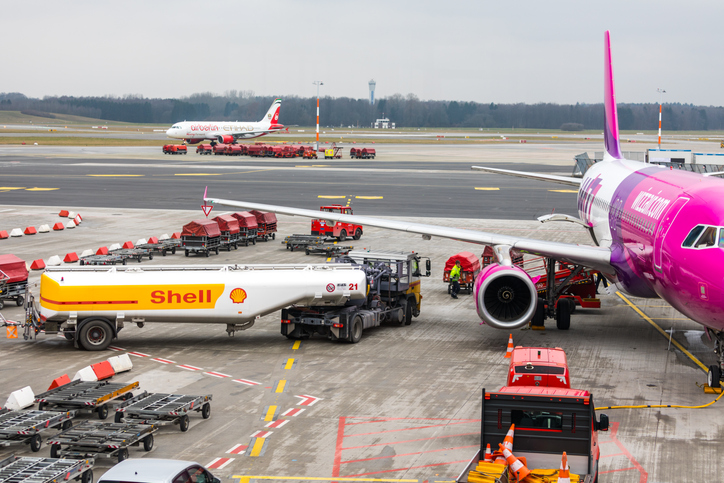ii view: Royal Dutch Shell moves to defend the dividend
A 60% fall in the oil price has pushed Shell to cut spending, but will the dividend be safe?
23rd March 2020 12:58
by Keith Bowman from interactive investor
A 60% fall in the oil price has pushed Shell to cut spending, but will the dividend be safe?

Covid-19 Finance update
- Reducing operating costs by $3-$4 billion per annum over the next 12 months compared to 2019
- Cutting capital expenditure to $20 billion (£17 billion) or below from around $25 billion
- Suspending a $25 billion (£21.5 billion) share buyback plan
- Initiatives expected to contribute $8-$9 billion of free cash flow
- Still committed to disposals of more than $10 billion of assets, but dependent on market conditions
Chief executive Ben van Beurden said:
“The combination of steeply falling oil demand and rapidly increasing supply may be unique, but Shell has weathered market volatility many times in the past.
“In order to deliver sustainable cash flow generation, Shell is actively managing all our operational and financial levers.
“Today, we are announcing that we have embarked on a series of operational and financial initiatives.”
ii round-up:
Given the corona crisis and a 60%-plus fall in the oil price year-to-date, oil major Royal Dutch Shell (LSE:RDSB) today announced a number of measures to help strengthen its finances.
Shell, which previously acquired BG Group, is suspending a $25 billion share buyback programme and cutting operating costs by between $3 billion and $4 billion per annum over the next 12 months.
The Anglo-Dutch firm is also reducing its capital expenditure programme to $20 billion or less, down from a previously estimated $25 billion.
Measures being taken are expected by management to increase group free cash flow by between $8 billion and $9 billion.
Shell shares were up by over 6% at lunchtime, contrasting with ongoing falls for rival BP (LSE:BP.) and other oil companies such as Premier Oil (LSE:PMO) and Cairn Energy (LSE:CNE).
Royal Dutch Shell, which operates in over 70 countries, has suffered a fall of just over 50% in its share price year-to-date. BP shares are down by just under 50% during 2020.
Shell is still committed to disposals of more than $10 billion of assets in 2019/2020 dependent on market conditions. It made no reference to any changes in its dividend payment, although the Cautionary Note section of today's update did include the usual warning that "No assurance is provided that future dividend payments will match or exceed previous dividend payments." Previously, footnotes to results have read: "Low oil and gas prices could also affect our ability to maintain our long-term capital investment programme and dividend payments."
A further quarterly investor update is currently scheduled for 31 March ahead of first-quarter results on 30 April.
ii view:
Shell today consists of Upstream, exploration & extraction, and Downstream refining divisions. It also includes Integrated Gas – largely the former British Gas liquefied natural gas (LNG) business – and a Power electricity focused division.
In a strategy update in mid-2019, Shell outlined its potential to distribute $125 billion or more to shareholders (dividends and share buybacks) over the five-year period between 2021-2025. Since then, a dramatic drop in the oil price has seen Shell and rival majors adjust shareholder returns, with reduced share buybacks proving the focus.
For investors, Shell and its dividend paying ability remain a key ingredient within an income generating portfolio. A historical dividend yield in the region of 15% is now raising questions about whether the payment will be cut. Measures announced today will help, while increased borrowing could also be used to help fund the payment. However, the possibility of a dividend cut now needs to be seriously considered.
Positives:
- Acquisition of BG Group improved both its product diversity and climate change credentials
- Shareholder returns a core focus
Negatives:
- Gearing rose to 29.3% at end of 2019 compared to 20.3% at end of 2018
- Subject to factors outside of its control such as geopolitical tensions
The average rating of stock market analysts:
Buy
These articles are provided for information purposes only. Occasionally, an opinion about whether to buy or sell a specific investment may be provided by third parties. The content is not intended to be a personal recommendation to buy or sell any financial instrument or product, or to adopt any investment strategy as it is not provided based on an assessment of your investing knowledge and experience, your financial situation or your investment objectives. The value of your investments, and the income derived from them, may go down as well as up. You may not get back all the money that you invest. The investments referred to in this article may not be suitable for all investors, and if in doubt, an investor should seek advice from a qualified investment adviser.
Full performance can be found on the company or index summary page on the interactive investor website. Simply click on the company's or index name highlighted in the article.